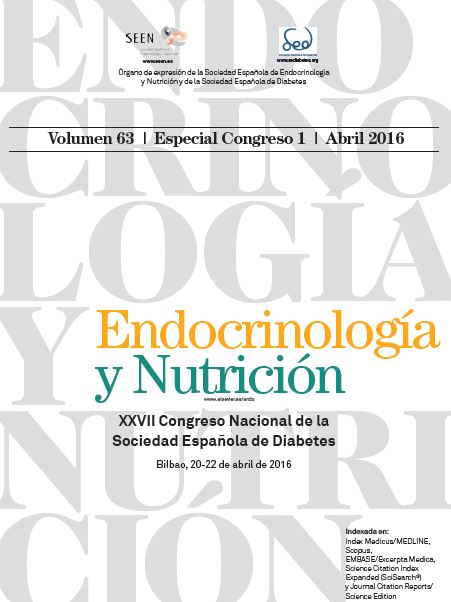P-035. - THE SYNTHETIC CANNABINOIDS ABN-CBD AND LH-21 AMELIORATE INFLAMMATORY STATUS AND ANXIETY IN DIET-INDUCED DIABETIC MICE
aHospital Regional de Málaga, Málaga. bCABIMER, Sevilla.
Introduction and objectives: Novel treatments to fight against type 2 diabetes (T2D) are needed. In this context, recent findings suggest that targeting inflammation is a promising complementary therapy. Indeed, there is evidence suggesting a link between anxiety/depression and obesity/T2D. Abnormal-cannabidiol (Abn-CBD) and LH-21 are synthetic cannabinoids whose pharmacology and effects are still unclear. Abn-CBD seems to activate GPR18 and/or GPR55, whereas LH-21 has been reported to antagonize CB1, though some recent report also suggest GPR55-mediated actions. Interestingly, these GPCRs have been related to inflammatory response and have indeed been found in the CNS. Despite preliminary anti-obesity and anti-hyperglycaemic activity of these drugs, there is a lack of information on the putative modulation of inflammation and anxiety/depression. In order to address these gaps, the effects of chronic administration of Abn-CBD and LH-21 was investigated in diet-induced obese/diabetic mice.
Material and methods: 10 weeks-old C57Bl/6J mice were fed a high-fat diet (45% kcal content) for 15 weeks. Animals developed an obese/diabetic phenotype with insulin resistance, glucose intolerance, fatty liver, altered inflammatory markers and anxiety. Then, groups of ten mice were daily injected with LH-21 (3 mg/Kg), Abn-CBD (0.05 mg/Kg) or vehicle for two weeks. Food intake and body weight was monitored on a daily basis, glucose handling was assessed by ipGTT and ipITT and finally mice were sacrificed for tissue collection. Several adipokines were determined by ELISA, and inflammatory citokines were assessed by V-PLEX proinflammatory panel kit. Liver histopathology was studied by oil-red staining and F4/80 immunohistochemistry. Behavioural performance was evaluated by the open field test and the elevated plus maze, before and after treatment.
Results: Abn-CBD and LH-21 treatment did not alter food intake and body weight gain, with little impact on glucose handling. However, both drugs showed anti-inflammatory effects to varying degrees. While Abn-CBD decreased the pro-inflammatory markers IL-6, IL-5 and KC-GRO with no changes in other inflammatory markers, such as IL-2, IL-12p70, IFN-γ, IL-10 and adiponectin, LH-21 decreased plasma levels of leptin without altering any other inflammatory marker. Abn-CBD and LH-21 did not decrease fat content in the liver, nevertheless both drugs decreased macrophages infiltrate in this tissue, suggesting an intra-hepatic anti-inflammatory effect. Regarding behavioural performance, Abn-CBD did not affect locomotion or anxiety. By contrast, LH-21 promoted an anxiolytic behaviour by increasing number of entries into open arms and reverting the obesity/diabetes-induced decrease in time spent and distance travelled in open arms of plus maze, without affecting locomotion.
Conclusions: Abn-CBD and LH-21 ameliorate the inflammatory status in an animal model of type 2 diabetes, the latter indeed reverting obesity/diabetes-induced anxiety.
Funding: Funded by the ISCIII (PI13/00309 to FJBS) and the Consejería de Salud de la Junta de Andalucía (PI-0574-2012 to SYRZ).





